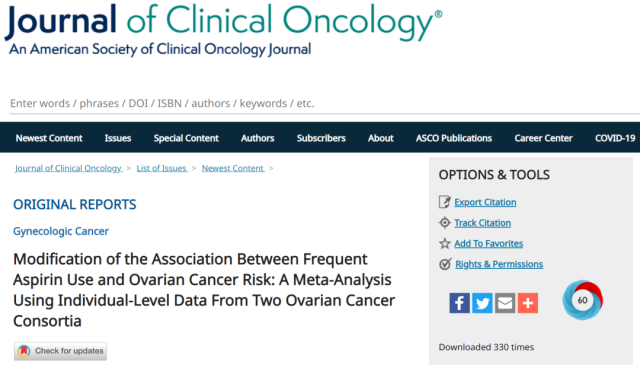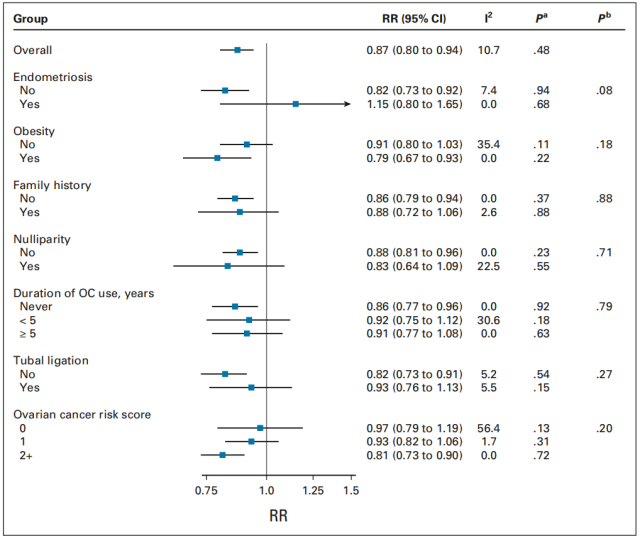High-frequency aspirin use is associated with a 13% reduction in ovarian cancer risk
- Aspirin: Study Finds Greater Benefits for These Colorectal Cancer Patients
- Cancer Can Occur Without Genetic Mutations?
- Statins Lower Blood Lipids: How Long is a Course?
- Warning: Smartwatch Blood Sugar Measurement Deemed Dangerous
- Mifepristone: A Safe and Effective Abortion Option Amidst Controversy
- Asbestos Detected in Buildings Damaged in Ukraine: Analyzed by Japanese Company
High-frequency aspirin use is associated with a 13% reduction in ovarian cancer risk
- Red Yeast Rice Scare Grips Japan: Over 114 Hospitalized and 5 Deaths
- Long COVID Brain Fog: Blood-Brain Barrier Damage and Persistent Inflammation
- FDA has mandated a top-level black box warning for all marketed CAR-T therapies
- Can people with high blood pressure eat peanuts?
- What is the difference between dopamine and dobutamine?
- How long can the patient live after heart stent surgery?
High-frequency aspirin use is associated with a 13% reduction in ovarian cancer risk.
JCO: Aspirin stands up in ovarian cancer prevention! Largest study to date found that high-frequency aspirin use is associated with a 13% reduction in ovarian cancer risk.
Despite the efforts of researchers, we have to admit that currently, our means of fighting cancer are still limited, so prevention needs to be prioritized, especially in high-risk groups.
For women, the incidence of reproductive system cancer is increasing year by year, especially ovarian cancer.
Although the incidence rate is lower than that of cervical cancer and uterine cancer, the mortality rate is the highest, and the 5-year survival rate is about 46% [1].
Ovarian cancer, like many cancers, also has the characteristics of insidious early onset and nonspecific clinical symptoms.
Therefore, most patients already have metastases when they are found, resulting in poor prognosis.
Are there any available prevention methods for ovarian cancer?
A recent study[2] published in the journal Clinical Oncology tells us that aspirin may be a potential option! Studies have shown that high frequency of aspirin use is associated with a 13% reduction in overall ovarian cancer risk, a 7-21% reduction in risk among women with other risk factors for ovarian cancer except endometriosis, and those with ≥2 risk factors , the risk was reduced by 19%.
The study is the largest to date exploring the relationship between aspirin and ovarian cancer risk.

Chronic inflammation may play an important role in the occurrence and development of ovarian cancer.
Therefore, anti-inflammatory drugs, such as aspirin, can reduce the synthesis of inflammatory factors by inhibiting cyclooxygenase, or inhibit the Wnt-β-catenin and NF-κB pathways. Ovarian cancer risk [3].
In recent years, several studies have provided evidence for the preventive effect of aspirin on ovarian cancer, but observational studies have been plagued by small numbers of patients with ovarian cancer, weak evidence, and inconsistent results.
Therefore, this study included 9 prospective cohort studies from the Ovarian Cancer Cohort Consortium (OC3) and 8 case-control studies from the Ovarian Cancer Association Consortium (OCAC) for meta-analysis. High frequency was defined as ≥6 days/week or ≥28 days/month for at least 6 months.
Nine cohort studies included a total of 491,651 women at risk for underlying ovarian cancer, with a mean follow-up of 4.6-14.3 years, and high-frequency aspirin use in 9.8-38%.
During follow-up, 2600 women were diagnosed with ovarian cancer, of which 56% were high-grade serous, 2% were low-grade serous, 9% were endometrioid, 5% were clear cell carcinoma, 4% were mucinous, and 4% were mucinous. 23% were other/unknown epithelial cancers.
Eight case-control studies included 5726 patients with ovarian cancer (54% high-grade serous, 4% low-grade serous, 15% endometrioid, 9% clear cell carcinoma, 5% mucinous, and 13% other /Unknown epithelial cancer) and 8027 controls, the proportion of high-frequency aspirin use was 5.6-29.8%.
In cohort studies, high aspirin use was associated with a 10% lower risk of ovarian cancer, and in case-control studies, high aspirin use was associated with a 16% lower risk of ovarian cancer.
In a meta-analysis of cohort and case-control studies, the pooled risk reduction was 13% , with no significant difference between cohort and case-control studies.
After grouping according to different ovarian cancer risk factors (endometriosis, obesity, no reproductive history, family history of breast/ovarian cancer, no history of oral contraceptives, and no tubal ligation), the researchers found that the endometrium A history of heterotopia may result in diminished protection.
Among women without endometriosis, high aspirin use was associated with an 18% lower risk of ovarian cancer, whereas among women with endometriosis, no risk reduction was found , although it is important to note that because the study included The number of patients with endometriosis is small and the confidence interval is large.
For other ovarian cancer risk factors, including obesity and a family history of breast/ovarian cancer, whether or not these factors were present, high frequency use was associated with a reduced risk of ovarian cancer , but obesity (21% vs. 9%) and family history ( 21% vs. 14% vs. 12%) had a slightly higher risk reduction than women without this risk factor.

Association of high aspirin use with ovarian cancer risk overall and in different risk factor subgroups
Consistent risk reductions were also observed in subgroups grouped according to protective factors for ovarian cancer, including reproductive history, oral contraceptive use, and tubal ligation.
High frequency of aspirin use was associated with similar reductions in risk in different histological types of ovarian cancer.
In the cohort study, 21% of women had none of the six risk factors, 42% had one, and 37% had ≥2, compared with 8% and 28% of ovarian cancer patients in the case-control study, respectively and 64%, compared with 12%, 37% and 51% in the control group
. Grouped by the number of risk factors, high aspirin use in high-risk women (≥2 risk factors) was associated with a 19% reduction in ovarian cancer risk, an association that was consistent across histological types.
Based on the results of these analyses, high aspirin use was associated with a significantly lower risk of ovarian cancer, a potential protective effect that was not influenced by multiple risk factors other than endometriosis by histology.
The researchers pointed out that because aspirin is associated with some serious adverse events, such as gastrointestinal bleeding and asthma, therefore, whether for future research or clinical application, high-frequency aspirin use for ovarian cancer prevention is best limited to women at high risk of ovarian cancer. , to balance the potential risks and benefits.
references:
[1] Chinese Anti-Cancer Association Gynecological Oncology Committee. Guidelines for the diagnosis and treatment of ovarian malignant tumors (2021 edition) [J]. Chinese Journal of Cancer, 2021, Vol. 31, Issue 6, pp. 490-500, ISTIC PKU CSCD CA, 2021.
[2] Hurwitz LM, Townsend MK, Jordan SJ, et al. Modification of the Association Between Frequent Aspirin Use and Ovarian Cancer Risk: A Meta-Analysis Using Individual-Level Data From Two Ovarian Cancer Consortia[J]. Journal of Clinical Oncology , 2022: JCO. 21.01900.
[3] Joharatnam-Hogan N, Cafferty FH, Macnair A, et al. The role of aspirin in the prevention of ovarian, endometrial and cervical cancers[J]. Women’s Health, 2020, 16: 1745506520961710.
cancer draft
high-frequency aspirin use is associated with a 13% reduction in ovarian cancer risk
(source:internet, reference only)
Disclaimer of medicaltrend.org
Important Note: The information provided is for informational purposes only and should not be considered as medical advice.



